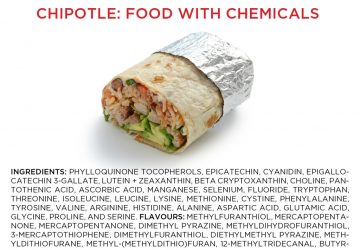 Hippie-ish grocery chain (and $21.4 billion-dollar corporation) Whole Foods Market announced this week that it would no longer carry Chobani-brand yogurts, which are produced using milk produced by cows fed genetically improved feed crops. It’s a case of the retailer playing to its customers’ prejudices, which — while perfectly legal — is disappointing.
Hippie-ish grocery chain (and $21.4 billion-dollar corporation) Whole Foods Market announced this week that it would no longer carry Chobani-brand yogurts, which are produced using milk produced by cows fed genetically improved feed crops. It’s a case of the retailer playing to its customers’ prejudices, which — while perfectly legal — is disappointing.
Instead of pandering from skittish retailers, consumers want (and need) education on the truth about genetically improved crops, which have been tarred as “GMOs” by radical critics. NPD Group, a market research firm, found that 62 percent of primary grocery shoppers were at least somewhat interested in learning more about improved crops.
We think consumers will appreciate the truth. Reputable scientific authorities, including the U.S. National Academies of Science, the British Royal Society, the American Association for the Advancement of Science, the American Medical Association, and the World Health Organization, support the conclusion that GMOs are safe. Additionally, genetic improvement may have many benefits, including protecting crops against disease, increasing yields in times of drought, and even supplementing nutrition in developing countries.
Unfortunately, much of the information available to consumers is misinformation put out by anti-corporate or other ideological activists. With a quarter of consumers looking to “health-related websites or apps” for information, we should cast a close eye on the people and organizations behind them.
One widely visited “health” website is Mercola.com, run by Joseph Mercola, which spreads anti-scientific fearmongering about genetically improved foods. Mercola is an “osteopath” — not an M.D. — who has been criticized by advocates of scientific medicine for spreading myths about medicine and who reportedly gave money to an anti-vaccination organization. He has also received warnings from the FDA for making unsubstantiated health claims on his products. That hasn’t stopped him from spending millions in California and Oregon to place warning labels on genetically improved foods; labels he hopes will “eliminate genetically engineered foods in the US.”
Better-known activist groups are also perpetrating the misinformation. The Environmental Working Group (EWG) is a leading organization standing against the reputable consensus and pushing for warning labels on GMOs. The group has a longstanding record of organic activism (organic foods are forbidden from using genetically improved ingredients) that included pesticide scaremongering a University of California, Davis study found misleading. Additionally, 79 percent of members of the Society of Toxicology — experts on the health effects of chemicals — who expressed an opinion found that EWG overstates chemical risks.
Reputable scientists support the use of genetic improvement technology, which can benefit both farmers and consumers. Kooks, cranks, and radical activists oppose it. The public should have the opportunity to hear from the experts, not the ideological activists.




